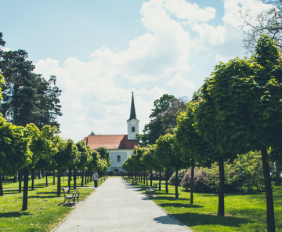I’m in countdown mode.
My fall programming starts in 5 weeks… And I’m on vacation for two of them.
Needless to say, that means I’m knee-deep in program prep for the fall. I’m recruiting adult leaders, training student leaders, and putting together our teaching calendar. I’m also forcing myself to slow down and think about the big picture. This is, at least in part, because of something a long-time educator recently told me, “In education, we start with the end in mind.”
What my educator friend meant is that when planning a lesson, educators start by thinking about what they want their students to learn from it. Once they know that, they backtrack to figure out how to accomplish that end.
In youth ministry, too often, we reverse this. We take an empty calendar and fill it in with social events, service projects, and teaching topics, all of which can be good things. Sometimes our framework for doing so is, “we’ve always done it this way”. Other times, it’s felt needs. Still other times, it’s prayer. Then, we rejoice when teens get something out of our events; we lament the weeks they don’t and quickly take solace in the fact that everyone has them.
I wonder how much more effective our efforts might be if we, like educators, actually started with the end in mind. What if, before adding any events to our calendar, we thought about our end goal?
What if, before mapping out our teaching series, we thought about the big picture? What if, before doing anything else, we figured out our answers to these questions:
- At the end of the year, what do we want our students to have wrestled with?
- At the end of the year, what do we want our students to leave knowing?
- At the end of the year, how do we hope our students will have grown relationally?
- At the end of the year, what connections do we want our students to have formed with the larger church body?
- At the end of the year, how do we want our students to have served?
- At the end of the year, how do we want our students to have grown in their faith?
- At the end of the year, how do we hope our students will be more like Christ?
Answering these questions isn’t easy. It’s also not a quick process, but it is an important one. Our answers to these questions have the potential to impact everything we do during the year and enable us to be far more intentional about what we do. The more intentional we are, the more we can capitalize on the limited time we have with students.
And let’s face it. We only get students for a few hours a week, a fraction of the time that educators get them for. What we do in those few hours has the potential to greatly impact teens and our wider communities. We are, after all, in the business of making disciples.
If that’s something we take seriously, maybe we should heed the advice of educators and make the most of our limited time with students by starting with the end in mind.




